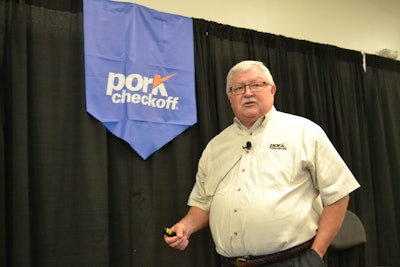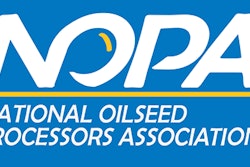
The increasing demand for renewable diesel will actually benefit pork producers struggling with otherwise high feed costs during the next several years, said Steve Meyer, lead economist, Partners for Production Agriculture.
Meyer, speaking on June 7 at the World Pork Expo in Des Moines, Iowa, discussed demand trends involving corn for ethanol and soybeans for renewable diesel during the session called “Porkonomics: An Economic Outlook for the Pork Industry.”
Meyer said the United States already has capacity to produce renewable diesel, but that capacity is expected to triple over the next several years. That demand is there, especially with states like California and Oregon putting in requirements for renewable diesel.
With soybean oil going into diesel production, a co-product of the process is used for animal feed.
“What do you get when you make soybean oil? You get a lot of meal,” said Meyer. “The only real good news I have for feed costs stretching out over the next four or five years is that soybean meal is going to be cheaper. We’re going to crush the beans for oil. You can’t store the stuff very well, basis is going to be weak, and it’s going to change fundamentally how you feed pigs.”
The future of ethanol
A common trend over the past several decades has been that as more corn is utilized for ethanol production, the less there will be available for livestock and poultry feed.
However, that equation is being altered with the emergence of the popularity of electric vehicles.
“The statement has been made that two-thirds of new cars and light trucks will be electric by 2032. How much gasoline do you sell to run an electric car? You probably sell some for the generator that they carry around in the trunk, but not very much. If you’re not going to sell gasoline, you’re not going to sell ethanol. So there’s some real challenges for ethanol going into motor fuels,” Meyer said.
“But there is a savior for the ethanol business. It’s called sustainable aviation fuel, and this one can eat up anything that we save on ethanol. So we’re not going to get a break by ethanol not being produced.”
Meyer said if sustainable aviation fuel catches on, more ethanol plants will probably be needed, and he anticipates that such fuel will catch on, “because the policy is there.”


















